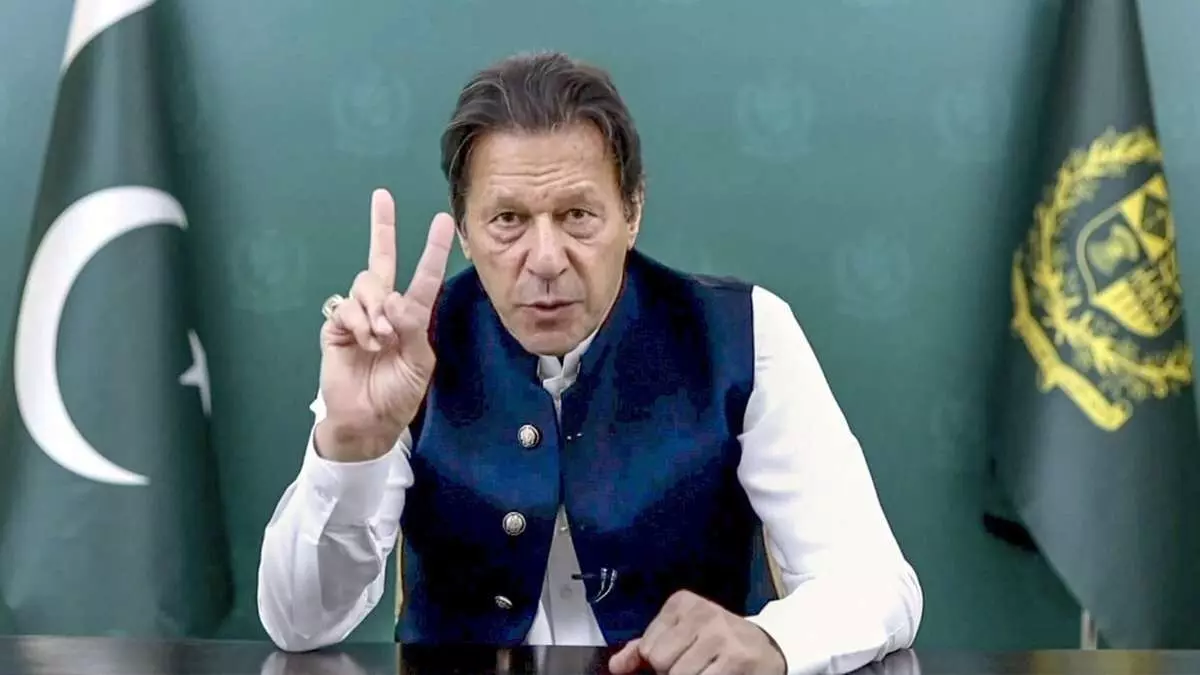Imran Khan's Response to the Pahalgam Terror Attack: A Call for Responsibility and Unity

In the wake of the tragic Pahalgam terror attack, former Pakistani Prime Minister Imran Khan has made headlines with his poignant remarks, delivered from jail. The attack claimed 26 innocent lives, and Khan's response has sparked a mix of condolences and political rhetoric. He stated, "The loss of human life in the Pahalgam incident is deeply disturbing and tragic. I extend my deepest condolences to the victims and their families." This heartfelt sentiment resonates, but it quickly transitions into a call for responsibility from India.
Khan's assertion that India needs to "act responsibly" in light of the ongoing tensions is notable. It reflects his broader concern about the nuclear flashpoint that is South Asia. As he stated, "Peace is our priority, but it should not be mistaken as cowardice." This statement not only emphasizes Pakistan's desire for peace but also underscores its military readiness should the need arise. The former prime minister reminded the world that Pakistan remains capable of defending itself against any perceived aggression, referencing the military response in 2019.
Moreover, Khan's commentary did not shy away from criticizing the current political leadership in Pakistan. He claimed that the excessive focus on political victimization is weakening the country’s ability to confront external threats. He pointed fingers at figures like Nawaz Sharif and Asif Zardari, labeling them as self-serving individuals whose interests lie abroad, away from the national narrative. This criticism highlights a significant divide in Pakistani politics, where personal ambitions often overshadow national interests.
What is intriguing is how Khan’s comments are being interpreted. Supporters of Khan view his remarks as a rallying cry for unity against external threats, while critics perceive it as a self-serving maneuver aimed at regaining political leverage. The dichotomy of opinions showcases the polarized political environment in Pakistan. Khan's remarks are not merely a statement on the Pahalgam incident; they echo a broader sentiment of nationalism and a call for a united front against perceived foreign aggression.
The timing of Khan's statements is also crucial. With escalating tensions between India and Pakistan, his comments come at a pivotal moment. Pakistan's Information Minister has already warned of potential Indian military strikes, claiming that there is credible intelligence regarding India's intentions. This atmosphere of impending conflict makes Khan's words even more significant, as they could influence public sentiment and political discourse in Pakistan.
In conclusion, Imran Khan's response to the Pahalgam terror attack transcends a simple expression of condolences. It is a mix of grief and a strategic positioning for political relevance amidst turmoil. As Pakistan grapples with internal and external pressures, Khan's call for unity, coupled with his critique of the current leadership, serves as both a reminder of the challenges faced and a beacon for potential solidarity among the populace. The path forward is fraught with difficulties, but Khan’s message echoes the desire for both peace and strength in the face of adversity.
